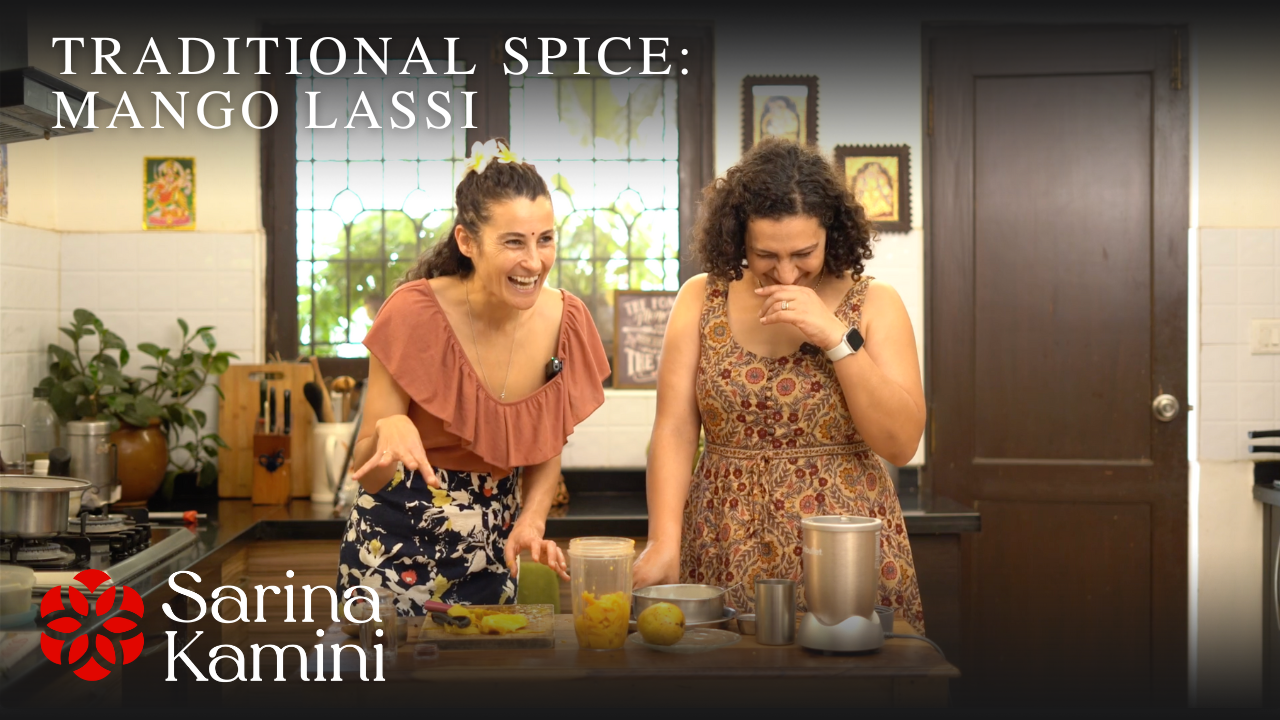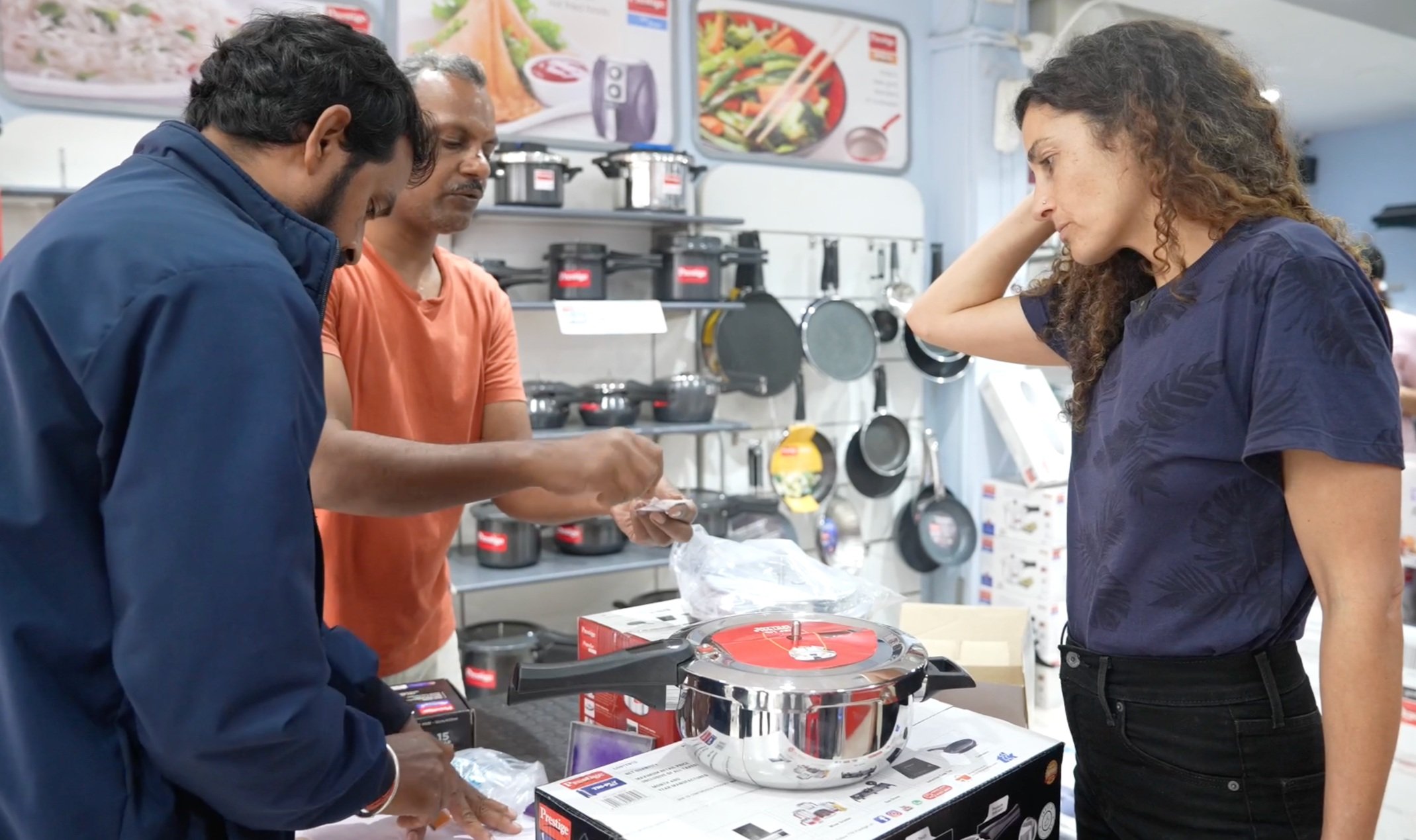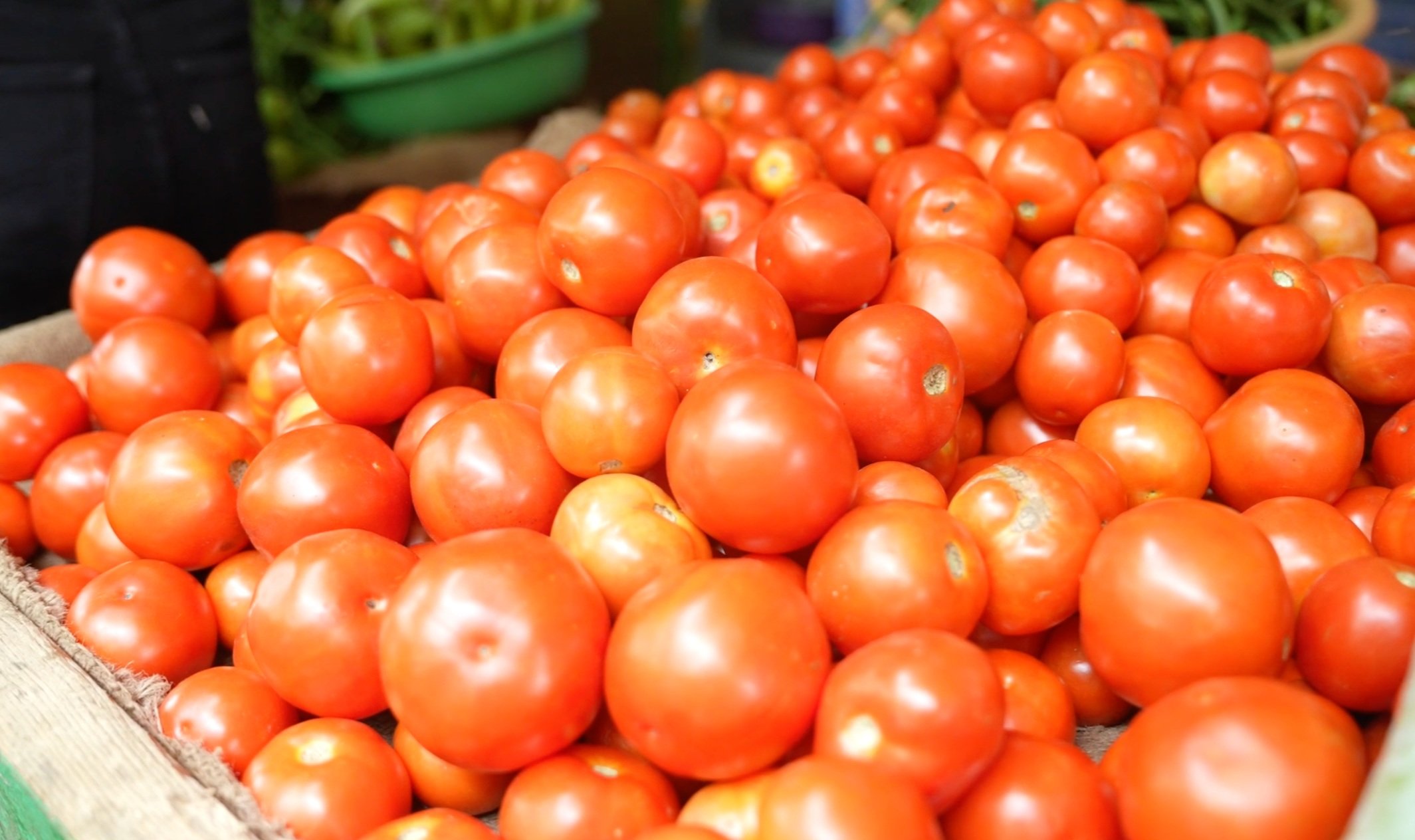MANGO LASSI
MANGO LASSI

SAFFRON GIVES OUR MANGO LASSI A RESTRAINED SWEETNESS.
Our mango lassi is simple to make from ripe mangoes, and good quality yogurt. The addition of saffron bloomed in a little bit of milk adds depths to the lassi’s natural sweetness. Enjoy this mango lassi recipe on its own, or serve in summer as an easy and delicious dessert.
Find out more about lassi and saffron >
RECIPE DETAILS
Serves: 2
Preparation time: 5 minutes.
Dietary Style: Gluten Free | Vegetarian | Dairy Free and Vegan options
INGREDIENTS
- 1 ripe mango
- 2 saffron strands
- 2 tbsp milk
- 1 cup water
- 5 tbsp yogurt
- sugar to taste
- 4 to 5 cubes of ice
METHOD
How to make our mango lassi recipe.
STEP 1
Tip the milk in a small bowl. Crush the saffron strands delicately in a small mortar and pestle or between your palms. Drop into the milk and let steep for a few minutes, until the milk turns a vibrant mango / saffron colour.
STEP 2
While the saffron is steeping, add all the ingredients in a blender. We used 1.5 tablespoons of sugar to sweeten. Use more or less as you like.
Add the saffron milk and blend. Pour into two glasses and serve with a spoon, topped with a few mango pieces, and enjoy chilled.
LEARN MORE ABOUT
LASSI
What is mango lassi?
Mango lassi takes the traditional probiotic lassi drink and steps it into the arena of a dessert by adding the rich and fleshy fruit of the mango. Add a littl cream and it could easily become a simple dessert.
What is lassi?
Lassi is a drink made from fresh yogurt or homemade curd. Traditional lassi has a little water or ice added before being blended with a little sugar (for sweet lassi) or salt (for salted lassi).
What does saffron taste like?
Saffron has a taste that is at once floral, wooded, and redolent of pressed cotton. It is subtle to detect, and the line between “too much” and “not enough” is very fine—err on the side of caution when adding to recipes. Overuse of saffron leaves an unpleasant bitter and wooded aftertaste.
What is saffron?
Saffron threads are harvested by hand from the flower of the Crocus sativus, known as the saffron crocus. The flower blooms only for a short time and, in the drying process of the handpicked stigmas or threads, the spice loses 80 percent of its weight. All of this is why saffron is the world’s most expensive spice.



